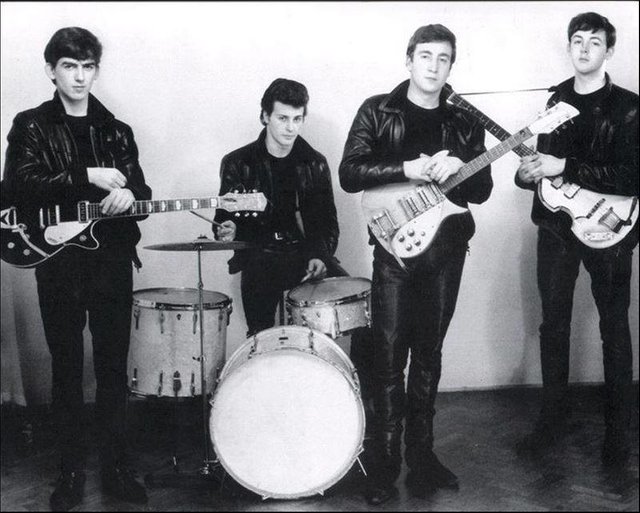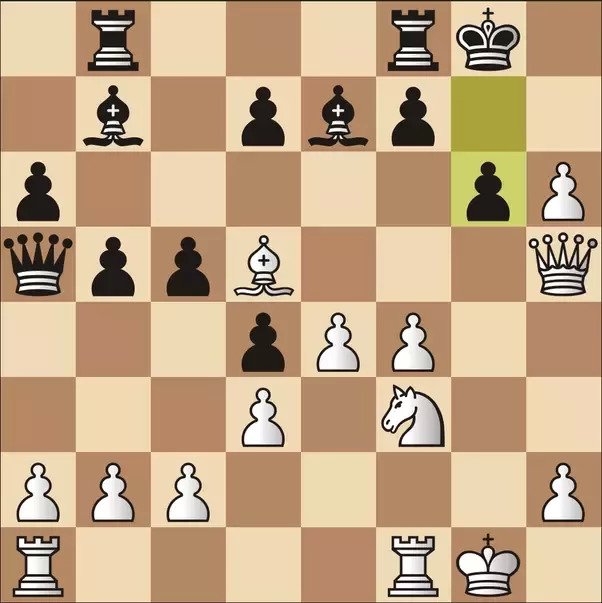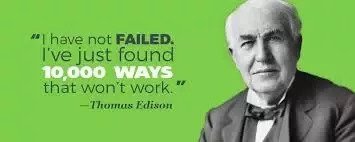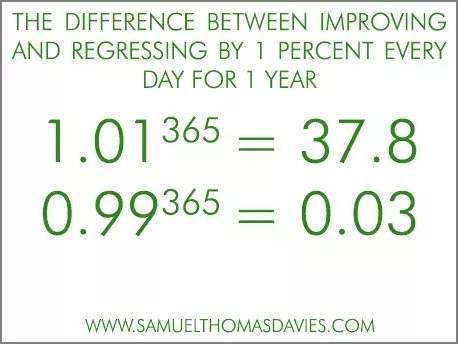7 STEPS TO LEARN AND MASTER ANYTHING AS QUICKLY AS POSSIBLE
SEVEN STEPS TO LEARN AND MASTER ANYTHING AS QUICKLY AS POSSIBLE
I hate learning.
I wanted to learn how to trade stocks and I ended up losing my home. I wanted to learn how to play chess better and in one of my first tournaments I threw all the pieces on the floor and cried.
I wanted to learn to play poker and I lost about $20,000 the first ten times I played.
I wanted to learn how to start a business. I wanted to learn more about investing. I wanted to learn computer programming, how to make a TV show, how to write a book, how to speak to a large audience, how to do standup comedy.
Heck, when I was a kid I wanted to learn how to breakdance. I wanted to learn how to kiss a girl. I wanted and wanted.
Every time I ended up crying. Over and over.
This is what I learned about learning.
A) HACK THE 10,000 HOUR RULE
This rule, developed by Anders Ericsson and popularized by Malcolm Gladwell, damaging me for years thinking I needed 10,000 hours to succeed at anything, states that you need 10,000 hours of “deliberate practice” to reach master-level potential.
For instance, as Gladwell writes in “Outliers” (but Ericsson disputes in his book “Peak”), The Beatles got their 10,000 hours playing 20 hours a day in strip clubs in Germany before they wrote their first album.

Mozart played piano for 10,000 hours by the time he was 12 years old.
Story after story.
So I felt frustrated. I feel frustrated.
I’m almost 50. I only like to learn something if I can be among the best. If I can reach my potential. Potential enough to see the nuances in something I love so much I want to get good at it.
But I’ll be dead after another 10,000 hours of learning.
But now I’m convinced the 10,000 hours can be skipped.
Here’s how.
B) PLUS, MINUS, EQUAL
PLUS
Find mentors.
A mentor can be real (someone who is willing to help you analyze your mistakes), or virtual (read books).
Both real and virtual are good.
For anything you are interested in, you should read 100 books a year. You should watch 100s of videos.
We have mirror neurons that learn by watching or reading our virtual mentors. It’s as if we download their lives into our brain and the mirror neurons think that their experience are ours.
For instance, when I wanted to learn how to be a better public speaker, I would watch videos of great public speakers right before I had to speak.
When I played in chess tournaments I would play through the games of world champions so I could learn more how they thought about the game.
And every time I lost a game I went over the game, move by move, with a grandmaster who I paid to coach me. He would set up similar positions to my losing position and we’d play game after game until I mastered the nuances.
When I wanted to learn about investing I read every investment book I could find and spoke with 100s of other great investors.
When you read, to maximize what you learn: immediately after reading a book write down “ten things I learned”. Else, you won’t remember more than 1 or 2 things at best from the book.
I’m trying to learn Standup Comedy now. I capitalize it because it’s that important to me. It’s the hardest skill I’ve ever had to learn.
I’m in year two. I probably watch 20 videos a day. I videotape myself on stage 4–6 times a week. And I read books about and by comedians. And, fortunately, I have a podcast. So I ask great comedians to come on and I can ask them any question I want.
EQUALS
This is so important it really deserves its own letter. This one category alone, “Equals”, is worth about 4,000 of the 10,000 hours.
Find people who love what you love and spend as much time talking about this shared area as you can.
If you are all equally striving and finding your own path through learning this new skill you all want to share, then you will build community and learn together.

(the “Beats”. Jack Kerouac, Allen Ginsberg, William S Burroughs, all rose up as writers together by comparing notes, editing each other’s works, encouraging each other, for over 20 years as they rose up in the industry together).
When I was learning poker, my friends and I would compare notes on every difficult hand we played during an evening.
When I was learning investing, I’d talk to friends in every area of investing (day trading, arbitrage, value investing, special situations, quantitative, etc etc) and we’d share notes and quickly learn through the experiences of each other.
Why not do this with mentors? Because the mentors have so far passed this level they are not always able to get into the weeds in the same way as the Equals.
MINUS
Explain what you are learning while you are learning it. Two reasons:
If you can’t explain in a simple way, then you need to learn more. Beginner’s mind.
People who are behind where you are at in learning the skill will ask basic questions that you often need to rehearse and rehearse and rehearse. Again: beginner’s mind.
—
C) MICRO-SKILLS
Every skill worth learning has dozens of micro-skills:
For instance, when I started my first successful business I had some natural skills at sales and technology (it was a technology business) but I had to learn so many micro-skills in order to succeed that it felt like I was going to die and fail almost every single day.
Here are some business micro-skills:
Sales, Management of employees, Negotiating, Selling to investors, Selling to acquirers, Product development, Product consistency and execution, Motivation, Emotional stability, and on and on.
All of the skills are exclusive of each other. Negotiating is not the same as Sales. Product development is not the same as management. But each skill needs to be developed to be successful.
Chess micro-skills: openings, middle game, endgame, tactics, positional play (which can be divided up into about 50 micro-skills, as well as all the different types of endgames), attack, defense, psychology, etc.

(White to move and win. Checkmate in two moves).
Standup micro-skills (I think. I hope): likability, commitment, crowd work (20–50 different types of crowds, mic work, pacing, stage control, and finally humor, which includes: punchlines, premises, tags, call backs, story telling, persona, act-outs, etc etc.
For whatever you are interested in: list the micro-skills. Figure out what you are good at, what you are bad at, and how you can learn to be better at each.
D) FAILURE
Anything worth learning, you’re going to suck. You’re going to suck badly.
The first day you play chess: you might love it, you might be talented, you might be confident, but you are a disaster compared to anyone with experience who has studied the game.
The same goes for business. For investing. For writing. For acting. For art. For creativity. For everything worth learning.
And failure is painful.

(It took Edison 10,000 attempts before he found the right filament to invent a lightbulb)
Nobody wants to lose money in poker. Or in investing. Nobody wants to spend months or years writing a book nobody reads.
But if you love something, and you want to get to your peak potential, your heart is going to break when you inevitably fail. And you will fail big and horrible and it will be like your brain and heart are torn in half.
But that’s the good news:
Because then you’re uncertified to study the failure. You can go to a PLUS, and your EQUALS, and look at where you went wrong.
You can’t learn as much from succeeding because it’s harder to pinpoint where mistakes are (and it means you are not taking enough chances).
Ray Dalio, the largest hedge fund manager ever, told me on my podcast, “Pain + Reflection = Progress”.
Pain is a must.
With standup comedy, I always say “Yes” to a challenge. Do comedy on a subway car? Yes. Do comedy on a Monday night in a blizzard with the entire audience from Norway? Yes. Go on stage with a 102 fever and my voice completely shot? Yes.
Then videotape. Then go over quarter second by quarter second.
I was speaking to one of the best comedians in the world a few weeks ago. He told me he still videotapes and studies every single time he’s gone on stage. Every year, every month, he’s better than the month before.
With business, it’s difficult because a business can take years. But try to have mini-failures. Challenge yourself on deadlines, challenge yourself on customer acquisition, on customer service, on micro-execution of product, and on and on.
Figure out the ways that you can fail, do them, study them, repeat.
E) ENERGY
This should be the first item. Because it’s the most important.
Without energy, you can’t learn.
If you don’t sleep enough, you’ll be too tired and you won’t learn.
If you’re in a bad relationship, your brain will be distracted and you won't learn.
If you don’t exercise your creativity, you won’t be able to combine ideas and learn from “idea sex”.
If you are too anxious, you will spend too much mental energy worrying about the future instead of learning in the present.
When I went broke for the fourth or fifth time I finally had to take a look back and say, “What was I doing right every time I made money?” and “What was I doing wrong”. It all boiled down to:
PHYSICAL HEALTH: Eat / Move / Sleep
EMOTIONAL HEALTH: Eliminate ALL of the toxic people in your life.
CREATIVE HEALTH: Write down ten ideas a day. The ideas can be about anything.
SPIRITUAL HEALTH: Learn how to deal with anxiety and regret. Release control over the things you have no control over.
Just these four things gave me so much energy, it probably took another 1000–2000 hours out of the 10,000 hours.
F) THE ONE PERCENT RULE:
Try to improve 1% a day at whatever it is you are trying to learn.
This seems like a small number. Just one percent!
But 1% a day, compounded, is 3800% per year.
That’s 37 times better than where you started in just one year.

I had a friend who I always played chess with. He played chess all day every day. But he never read a book on chess or studied with anyone.
He just played the same moves and made the same mistakes game after game. I asked him why he didn’t take the basic steps to improve?
All you have to do is take basic steps each day to improve as small as 1%.
He said, “Ahhh, I just like to play.” Which is fine.
But he never got better. Chess is much more enjoyable (everything is much more enjoyable) when you get better and when you learn and can appreciate the subtleties and the nuances.
Everything is an art form. The greatest artists have a vocabulary of 100,000s of patterns in their chosen field.
“Speaking” that vocabulary is pleasurable because you can enjoy the art form more, you can succeed more easily, you get acclamation for your success, you make friends with others who are also successful because you speak their language - but it requires every day learning new “words” in your art form.
Studying how Warren Buffet invests. Or how Bobby Fischer plays the King’s Indian. Or how Richard Pryor brought his authentic voice into his comedy. Or how Richard Branson can build and manage 400 businesses.
Or challenging yourself to fail a little bit each day to expand your comfort zone.
One percent a day = 3800 percent a year.
G) DO IT
You can’t get better at chess just by reading about it. You have to play. Then you have to play in high stress situations (like a tournament).
You can’t get to be the best at business just by reading about Richard Branson. You have to start a business (or work for a startup or even work for a big business and notice their small successes and failures).
You can't get to be great at comedy by watching videos. You have to go on stage. Every day.
Every day.
Summary:
PLUS, MINUS, EQUAL
MICRO-SKILLS
FAILURE (Pain + Reflection = Progress)
ENERGY (Physical, Emotional, Creative, Spiritual health every day)
ONE PERCENT RULE
DO IT (every day)
USE THE ABOVE TO HACK THE 10,000 HOURS RULE (10,000 hours of deliberate practice gets you to your full potential).
Really nice work! Kind of depressing though too. =) @originalworks
The @OriginalWorks bot has determined this post by @kral789 to be original material and upvoted it!
To call @OriginalWorks, simply reply to any post with @originalworks or !originalworks in your message!